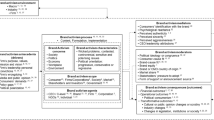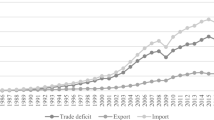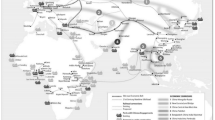Abstract
Whereas the concept of “socialist rule of law” punctuated political discourse in the late 1990s, the idea of a “socialist harmonious society” is today casting a strange light on Chinese legal reform. Is there a Confucian vision of China’s marketing law and practice? To what extent have China’s norms for marketing, mainly intellectual property and advertising law, been challenged by the new government policy toward a harmonious society? In the post World Trade Organization accession period, the theoretical framework of the “socialist harmonious society” has turned law into a disciplinary principle given over to society’s moral construction. If law is seen as an instrument for legitimizing power, it remains implicitly bound primarily to ensure the regime’s durability. Although more and more ordinary citizens and foreign companies are seizing hold of normative tools being put at their disposal, this does not necessarily mean that Chinese law is implemented in a uniform and timely manner throughout China’s territory. China still suffers from a lack of coherence and political will in the drafting of a legal reform that aims mainly at preserving the current fragile political balance. Contradictory forces are indeed at work in this legal construction that is torn between liberal leanings and socialist authoritarianism. Without a deep change in perspective, one can expect only relatively slow progress in protecting the intellectual property rights of the many Chinese and foreign goods and services that can be found on the Chinese market.
Similar content being viewed by others
Abbreviations
- GATS:
-
General Agreement on Trade in Services
- GAO:
-
General Accounting Office (United States)
- MFN:
-
Most Favored Nation
- MOFCOM:
-
Ministry of Commerce of the People’s Republic of China
- MOFTEC:
-
Ministry of Trade and Economic Cooperation
- PNTR:
-
Permanent Normal Trade Relations
- PRC:
-
People’s Republic of China
- SAIC:
-
China State Administration of Industry and Commerce
- TRIPS:
-
Trade-Related Aspects of Intellectual Property Rights
- TPRM:
-
Trade Policy Review Mechanism
- TRM:
-
Transitional Review Mechanism
- USTR:
-
United States Trade Representative
- WIPO:
-
World Intellectual Property Organization
- WTO:
-
World Trade Organization
References
Alford, W.P 1995 To steal a book is an Elegant Offense: Intellectual Property Law in Chinese Civilization. Stanford University Press.
Bonnin, M.: 1996, “When the Saints come Marching Back”, China Perspectives, n° 5, pp. 10-19.
Bourgon, J.: 1994, ‘Shen Jiaben et le droit chinois à la fin des Qing’, Doctoral Thesis, EHESS
China Daily: 2007, ‘Crackdown on Fake, Substandard Food Cases’, December 20, http://www.chinadaily.com.cn/china/2007-12/20/content_6334014.htm
China Rights Forum: 2005, China’s Social Insecurity, no. 1 (China Rights Forum)
Choukroune, L.: 2002, ‘Rule of Law Through Internationalization: The Objective of the Reforms?’, China Perspectives, no. 40, March–April
Diamant N.J., Lubman S.B., O’Brien K.: 2005, Engaging the Law in China: State, Society and Possibilities for Justice, (Stanford University Press).
Donatuti, J. L.: 2007, ‘Can China Protect the Olympics or Should the Olympics be Protected from China?’, Journal of Intellectual Property Law 13(2), 153-173
Gao, Z.: 2007, “An in-depth examination of China’s advertising regulation system”, Asia Pacific Journal of Marketing and Logistics, 19(3), 307-323
Hook, L.: 2007, “The Rise of China’s New Left”, Far Eastern Economic Review, 170, 12
Jung, Y.: 2002, ‘China’s aggressive legalism’, Journal of World Trade, 36, 1037–1060
Lardy N.: 2002, Integrating China into the Global Economy (Washington, Brookings Institution Press).
Li, Y.: 1998, Fade-Away of Socialist Planned Economy: China’s Participation on the WTO. In: F. Weiss, E. Denters and P. de Waart (eds.), International Economic Law with a Human Face (Kluwer Law International, The Hague), pp. 453–477
Li G.: 2000, Shen Jiaben zhuan (biography of Shen Jiaben), Beijing, (Falü chubanshe).
Li Z 2001 “Legacy of modern Chinese history: its relevance to the Chinese perspective of the contemporary international legal order”. Singapore Journal of International and Comparative Law. 5: 314-326.
Li. Y.: 2003, ‘Professional Ethics of Chinese Judges, A Rising Issues in the Landscape of Judicial Practice’, China Perspectives May–June, http://chinaperspectives.revues.org/document274.html
Liebman, B. L.: in press, 2007, “China’s Courts: Restricted Reform”, Columbia Journal of Asian Law 21(Fall 2007), No. 1
Lubman S.: 1999, Bird in a Cage. Legal Reform in China after Mao, (Stanford University Press).
Lubman, S.: 2006, ‘Looking for Law in China’, Columbia Journal of Asian Law 20(1), 1–92
Lubman, S. B. and L. Choukroune: 2004, ‘L’incomplète réforme par le droit’ [Incomplete reform through law], Esprit No. 2, February 2004, pp. 122–136
Miller, A.: 2007, ‘Hu Jintao and the Sixth Plenum’, China Leadership Monitor No. 20
Mishra, P.: 2006, ‘China’s New Leftist’, New York Times October 15
Nakagawa, J.: 2002, ‘Lessons from the Japan-China “Welsh Onion War”’, Journal of World Trade, 36, 1019–1036
OECD: 2002, China in the World Economy: the Domestic Policy Challenges, (Paris, OCDE, Coll. Emerging Economies Transition) and OCDE: 2005, Economic Surveys: China.
OCDE: 2005, Economic Surveys: China. OCDE, Paris
OECD: 2007, ‘The Economic Impact of Counterfeiting and Piracy’, Paris, http://www.oecd.org/document/50/0,3343,en_2649_34173_39542514_1_1_1_1,00.html
Pendleton M. has also worked extensively on China’s and Hong Kong’s intellectual property regimes. See Intellectual Property Rights–Hong Kong SAR and People’s Republic of China (2003), Lexis Nexis Butterworths, 1826 pp
Pils, E.: 2006, ‘Land Disputes, Rights Assertion and Social Unrest in China: A Case from Sichuan’, Columbia Journal of Asian Law 19(1), 365
Piquet H.: 2005, La Chine au carrefour des traditions juridiques, (Bruxelles, Bruylant).
Rawls J. : 1993, Justice et démocratie [Justice and democracy], (Editions du Seuil, Coll. Points).
Shi, J.: 2006, ‘La Codification du droit civil chinois au regard de l’expérience français’ [Codification of Chinese Civil Law in the Light of the French Experience], Ph.D. Dissertation, L.G.D.J
Singh, J. J., S. J. Vitell, J. Al-Khatib and I. Clark III: 2007, ‘The Role of Moral Intensity and Personal Moral Philosophies in the Ethical Decision Making of Marketers: A Cross-Cultural Comparison of China and the United States’, Journal of International Marketing 15(2), 86–112
United States Trade Representative: 2002, ‘2002 Report to Congress on China’s WTO Compliance’, December 11, http://www.ustr.org
United States Trade Representative: 2003, ‘2003 Report to Congress on China’s WTO Compliance’, December, 17 2003, http://www.ustr.gov
USTR: 2007, ‘2007 Report to Congress on China’s WTO Compliance’, http://www.ustr.gov/Document_Library/Press_Releases/2007/December/USTR_Releases_2007_Report_to_Congress_on_Chinas_WTO_Compliance.html
van Rooij, B.: 2005, “China’s War on Graft: Politico-Legal Campaigns against Corruption in China and Their Similarities to the Legal Reactions to Crisis in the U.S.” Pacific Rim Law and Policy Journal, 14, 289–336
Wang, T.: 1990, ‘International Law in China: Historical and Contemporary Perspectives’, R.C.A.D.I., Tome 221, 237–262
Yu, P. K.: 2007, ‘Intellectual Property, Economic Development and the China Puzzle’, in D. J. Gervais (ed.), Intellectual Property, Trade and Development: Strategies to Optimize Economic Development in a TRIPS Plus Era (Oxford University Press, Oxford)
Zhang, X. A., N. Grigoriou and L. Li: 2007, ‘The Myth of China as a Single, the Influence of Personal Value Differences on Buying Decisions’, International Journal of Market Research 50(Issue 3), 377–402
Zheng, C., http://www.iolaw.org.cn/showscholar.asp?id=81&type=%E4%B8%AA%E4%BA%BA%E7%AE%80%E5%8E%86
Zweig D.: 2002, Internationalizing China: Domestic Interests and Global Linkages, (Ithaca, Cornell University Press).
Author information
Authors and Affiliations
Corresponding author
Rights and permissions
About this article
Cite this article
Choukroune, L. “Harmonious” Norms for Global Marketing the Chinese Way. J Bus Ethics 88 (Suppl 3), 411–432 (2009). https://doi.org/10.1007/s10551-009-0305-8
Published:
Issue Date:
DOI: https://doi.org/10.1007/s10551-009-0305-8




